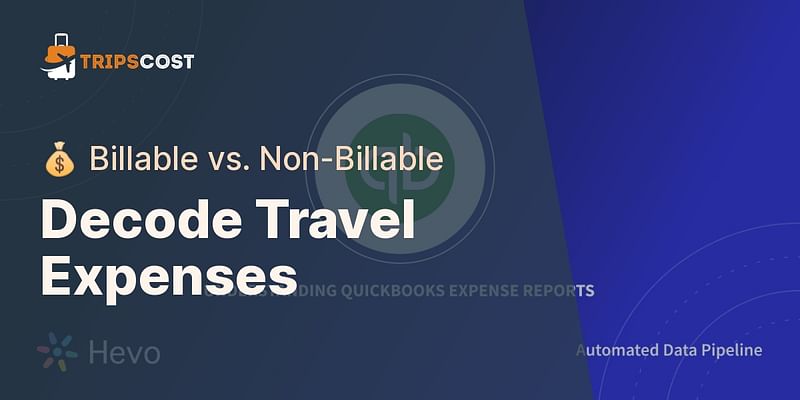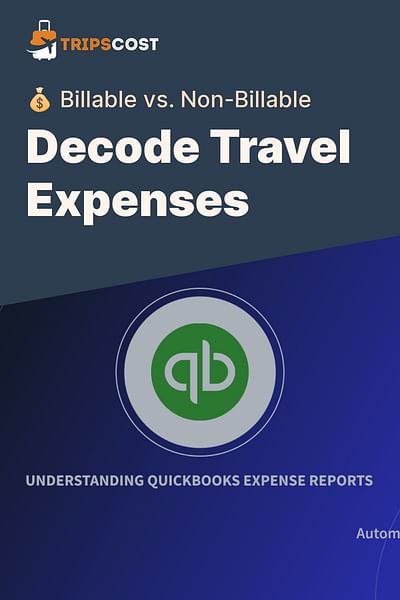Kayley is an expert luxury travel blogger, famous for her experiences in the world's most sumptuous hotels. Her passions include high-end dining and rejuvenating spa retreats. When not on the move, Kayley spends her time practicing yoga and meditation.
Billable vs. Non-Billable Travel Expenses: Understanding the Difference
When planning a trip, it's important to understand the concept of billable and non-billable travel expenses. These terms are commonly used in the business world, but they can also apply to personal travel. In this guide, I'll explain what billable and non-billable travel expenses are and how they can impact your overall travel costs.
Billable Travel Expenses:
Billable travel expenses are costs that can be directly attributed to a specific project or client and are therefore eligible for reimbursement or deduction. These expenses are typically incurred when you travel for work purposes, such as attending a conference, meeting with clients, or conducting research.
Some common examples of billable travel expenses include:
1. Transportation: This includes airfare, train or bus tickets, rental cars, and taxis or rideshare services used for business-related purposes.
2. Accommodation: The cost of hotel stays or other lodging arrangements directly related to your work activities.
3. Meals: Expenses for meals and entertainment that are incurred while conducting business or entertaining clients.
4. Communication: Costs associated with phone calls, internet access, and other communication services necessary for work purposes.
5. Supplies: Expenses for any materials or equipment needed specifically for the project or client you are working with.
It's important to keep detailed records of your billable travel expenses, including receipts and invoices, as these will be necessary for reimbursement or tax deductions. If you are unsure about what expenses are considered billable, consult your employer or tax advisor for guidance.
Non-Billable Travel Expenses:
Non-billable travel expenses, on the other hand, are costs that are not directly related to a specific project or client and are not eligible for reimbursement or deduction. These expenses are typically incurred for personal reasons or during leisure travel.
Examples of non-billable travel expenses include:
1. Personal Transportation: Costs for transportation that is not related to work, such as commuting to and from the airport or traveling for personal reasons during a business trip.
2. Personal Meals and Entertainment: Expenses for meals and entertainment that are not directly related to work activities or client entertainment.
3. Personal Expenses: Costs for personal items or services, such as souvenirs, spa treatments, or personal phone calls.
While non-billable travel expenses may not be eligible for reimbursement or tax deductions, they are still an important consideration when planning your trip. By understanding which expenses are billable and which are not, you can better manage your budget and make informed decisions about your travel expenses.
Conclusion:
In summary, billable travel expenses are costs that can be directly attributed to a specific project or client and are eligible for reimbursement or tax deductions. Non-billable travel expenses, on the other hand, are personal costs that are not directly related to work and are not eligible for reimbursement or deductions.
By understanding the difference between billable and non-billable travel expenses, you can better manage your travel budget and ensure that you are accurately tracking and reporting your expenses. Remember to keep detailed records of your billable expenses and consult with your employer or tax advisor if you have any questions or need further clarification. Happy travels!















